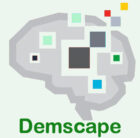Diagnosis
Some of the symptoms of vascular dementia may seem like those a lot of people develop with age, such as forgetting things or having difficult concentrating or a lack of mobility. People with the condition may not recognise they have it but others around them might start to notice changes. Generally diagnosis will start with a conversation with a GP who can request blood tests to rule out other causes of symptoms. After this, specialist teams can carry out cognitive memory tests, MRI or CT scans to detect any abnormalities in the brain.
It is important that, if you or someone you know displays any signs or symptoms which are worrying that you contact your GP immediately.

